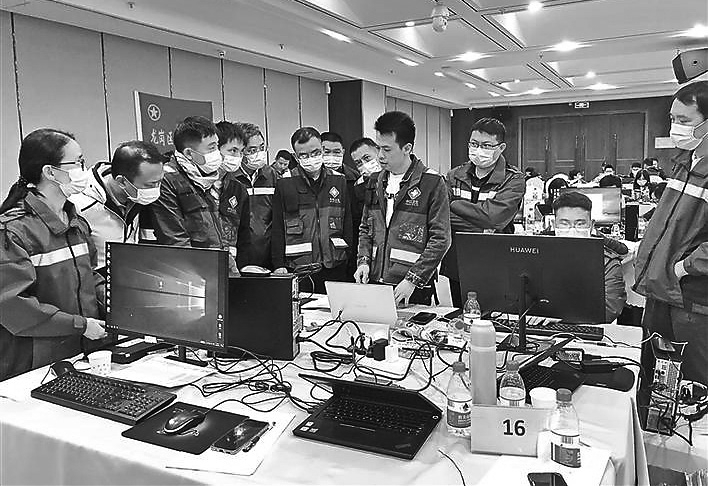
A 350-SQUARE-METER conference room at Luohu District’s COVID-19 emergency response office was packed with staffers. This was the location where epidemiological investigations were made. Each staffer has a laptop in front of them, their keyboards tapping and phone calls heard at all times, with microphone announcements to notify about emergencies from time to time. Epidemiological investigations are conducted to understand a certain key group’s tracks, people they meet and past events in a certain time period, find out where the virus comes from, how it spreads and to whom it may spread to, Peng Xiaoxue, an epidemiological investigation staffer in Luohu, told Shenzhen Evening News on Thursday. Peng is the leader of the second epidemiological investigation team for Luohu’s COVID epidemiology emergency response. According to Peng, epidemiological investigations are conducted to provide basis for determining close contacts, taking control measures and delimiting the scope of disinfection. “Personal information, health status, tracks, payment records, and travel records such as train and air tickets may be requested during epidemiological investigations in order to acquire accurate tracks. Citizens can be rest assured that any information obtained would be kept totally confidential,” Peng was quoted as saying. Peng said that epidemiological investigators will not inquire about property and other matters unrelated to disease transmission, nor will they ask for a QR code, bank account number or verification code, nor will they let the public pay or transfer money for any purpose. According to the COVID emergency response plan for the local epidemic in Guangdong Province, local disease control departments should work with the public security departments to conduct investigations on patients’ tracks from first 14 days before onset to before quarantine, and immediately organize and carry out field epidemiological investigations. Epidemiological investigations are crucial for epidemic control, and the information collected can play a key role in effectively curbing the epidemic. However, what is most difficult is that the investigations are not only for confirmed cases, but also for suspected cases, asymptomatic infections, and those who have had close contact with the above personnel and the suspected contaminated surroundings. The investigations entail not just many people, but also a strict time limit. All information and disposal plans must be collected and implemented within 24 hours, resulting in a massive effort. “We must master the core information of confirmed cases within four hours,” said Zheng Qingming, director of the Luohu Center for Disease Control and Prevention’s health education department. “Within 12 hours, we must preliminarily complete the research, judgment and delimitation of key places, and identify close contacts and secondary close contacts within 24 hours.” “Our information collection must be faster than virus transmission,” Zheng said, adding that there are currently nearly 300 epidemiological investigators in Luohu’s COVID-19 emergency response office. (Zhang Yu) | 
